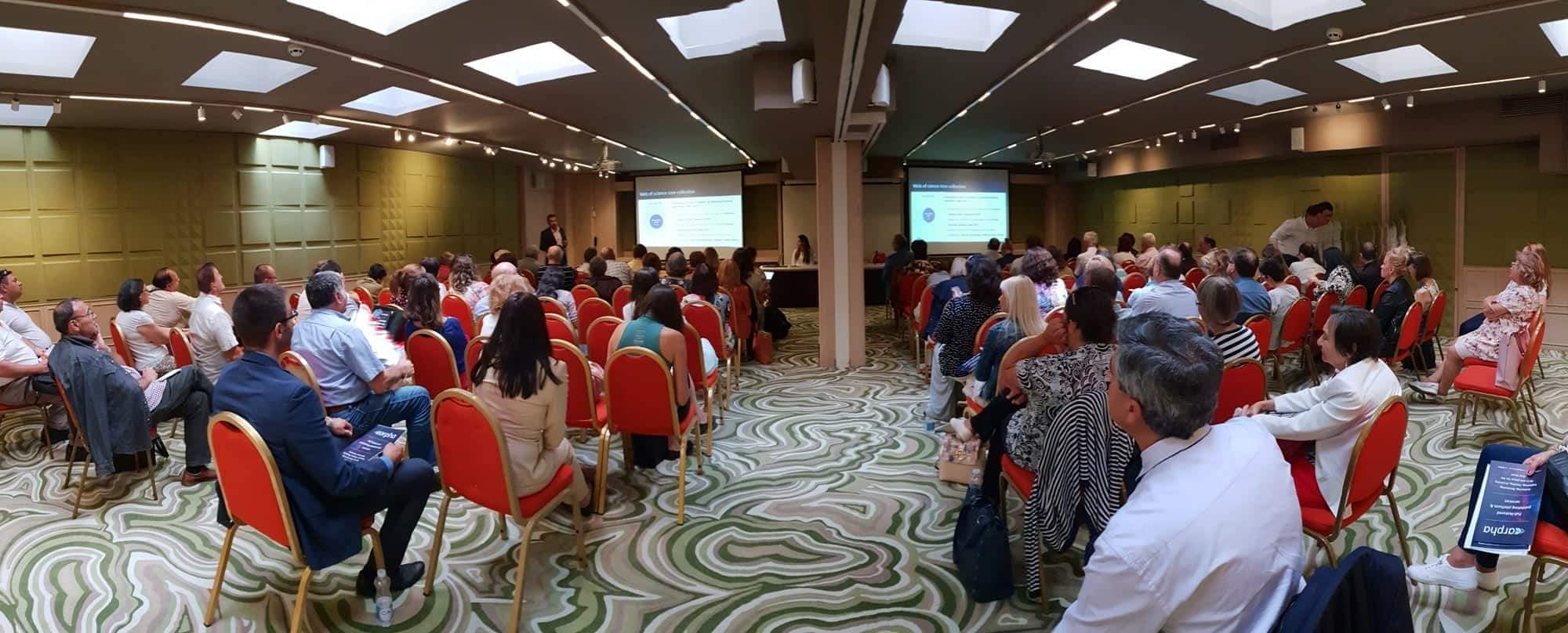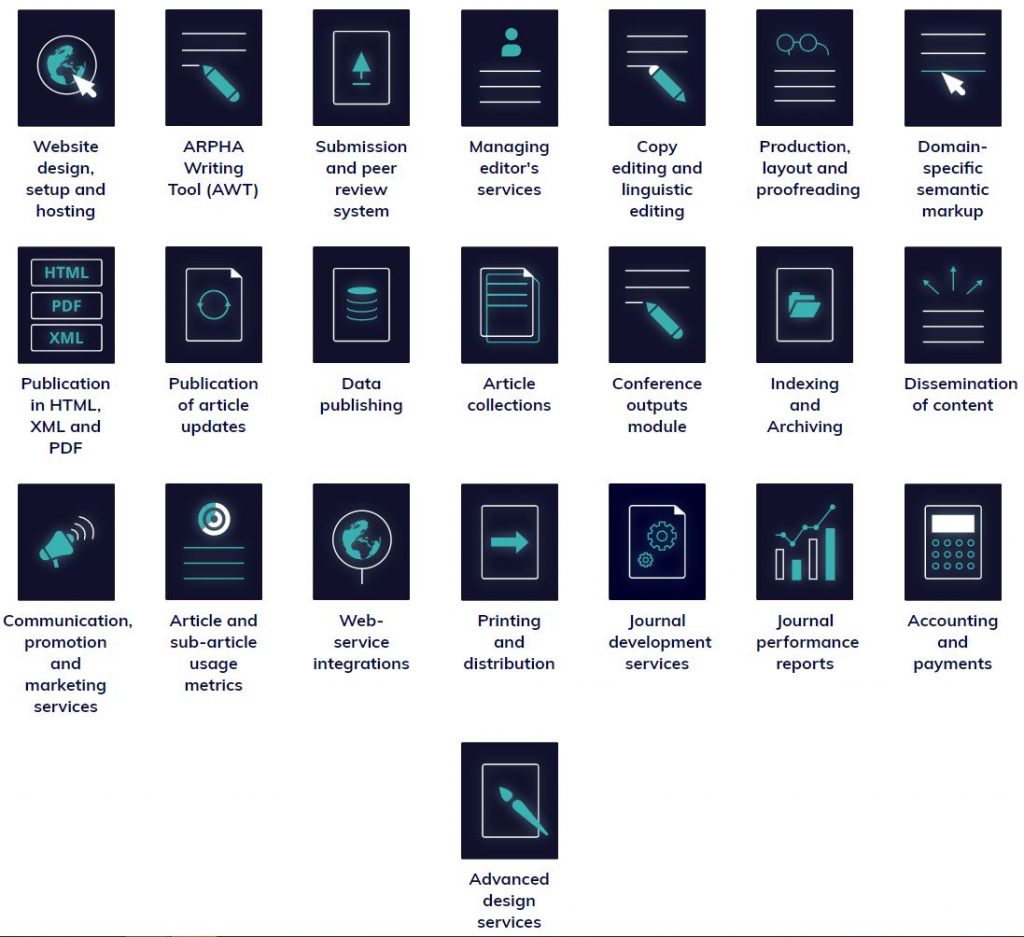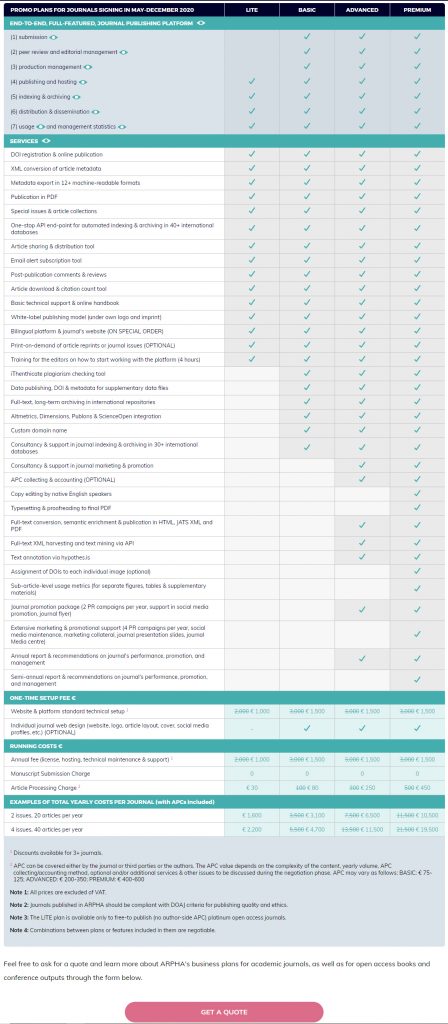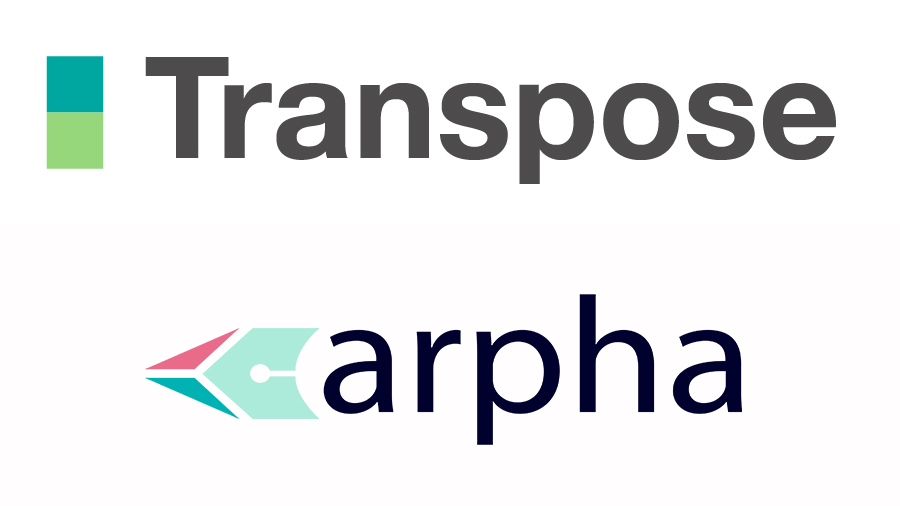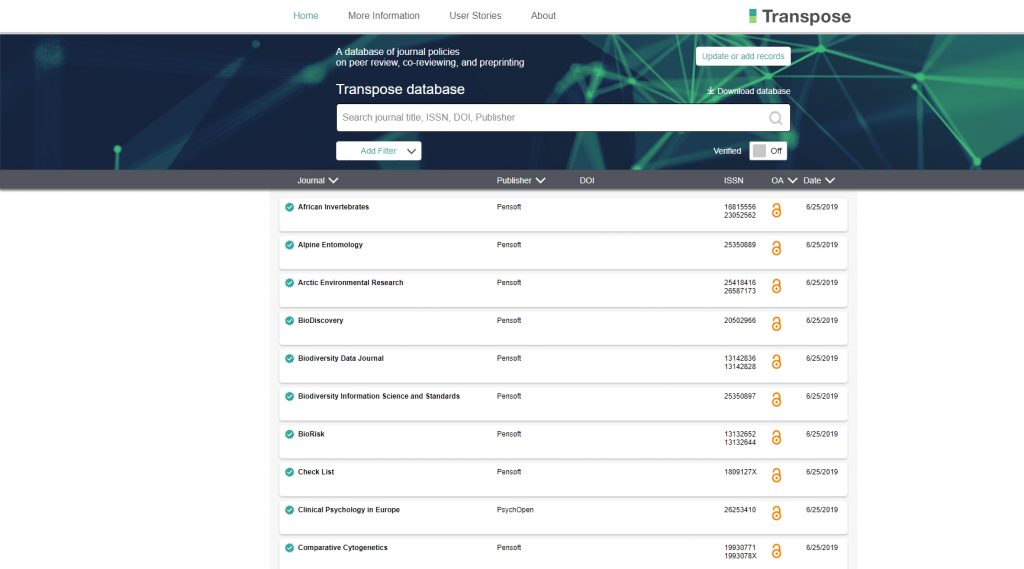The event was co-organised by Pensoft and the Bulgarian National Science Fund (BNSF) at the Ministry of Education and Science
Over one hundred representatives of Bulgarian scholarly journals and academic institutions attended a seminar, organised by the scientific publisher and technology provider Pensoft and the Bulgarian National Science Fund (BNSF) at the Ministry of Education and Science of Bulgaria. The meeting, themed “The Bulgarian scholarly journals in the global scientific environment – advancements in the publishing model, technological modernisation, indexing, dissemination and promotion,” took place in Sofia in September.
In his speech, Prof. George Vaysilov, Director of the BNSF, highlighted the crucial role of scholarly publishing reformation in Bulgaria. He also answered various questions concerning the funding available to scientific journals.
“These events are useful for the Bulgarian scientific journals and the Bulgarian National Science Fund” will continue to participate in their organisation,” he said.

Photo by Pensoft.
In their talks, the Pensoft team addressed key topics and innovations related to journal publishing, management, dissemination and marketing in the digital era. They also showcased how these challenges are approached at the journals published via the scholarly Pensoft-developed ARPHA Platform.
Main topics in the discussions were „Plan S”, the ongoing initiative for a global transition to immediate Open Access (Gold Open Access); exclusive digitisation; interoperability, findability and accessibility to online research items and data; traditional and alternative metrics for tracking journal impact; as well as the specifics about journal indexing.
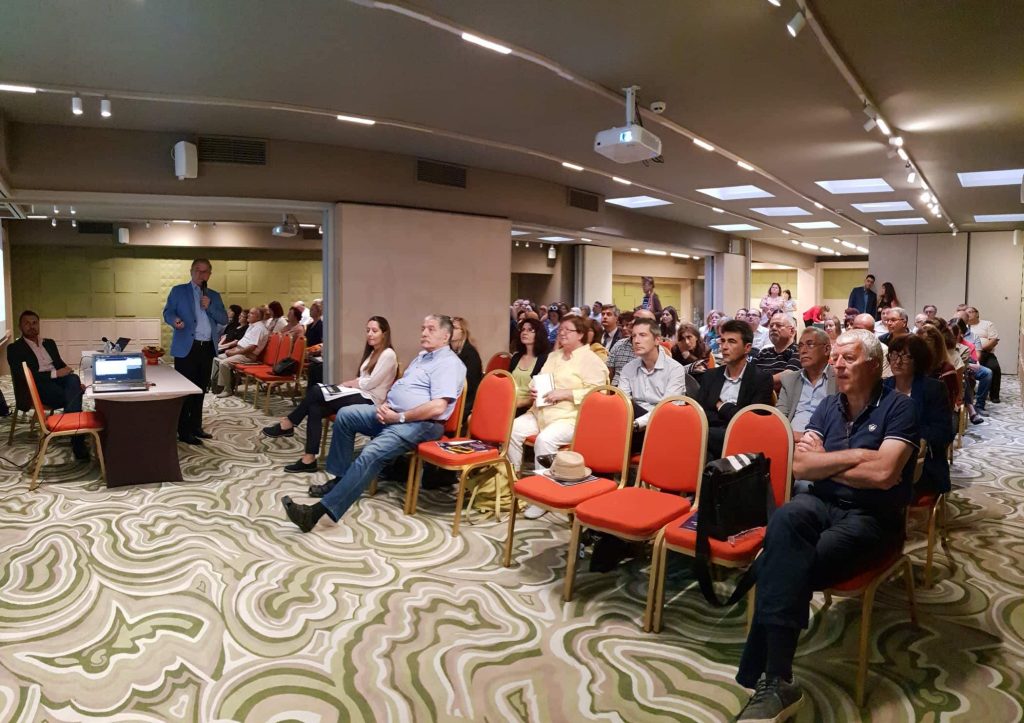
“Technological modernisation of the publishing process in an Open Access and Open Science environment” was the theme of Prof. Lyubomir Penev’s presentation.
Photo by Pensoft.
Prof. Lyubomir Penev, Director and founder of Pensoft and ARPHA, added:
“In our own lifetimes, we’ve been the witnesses of a tremendous technological breakthrough on a global level. Not only does academia need not be left behind – its place is at the very forefront of such a revolution. This is exactly what we intend to do with ARPHA: to provide an all-rounded platform coupled with all the associated services, in order to provide the technological backbone needed by historical, as well as recently launched journals to make a stand on the international scene. Having listened to the questions and concerns of the Bulgarian publishers, I am able to confirm that the situation is not that different to what we see everywhere: there is the evident understanding of the situation and desire for a change. What is necessary is only a bit of practical know-how.”
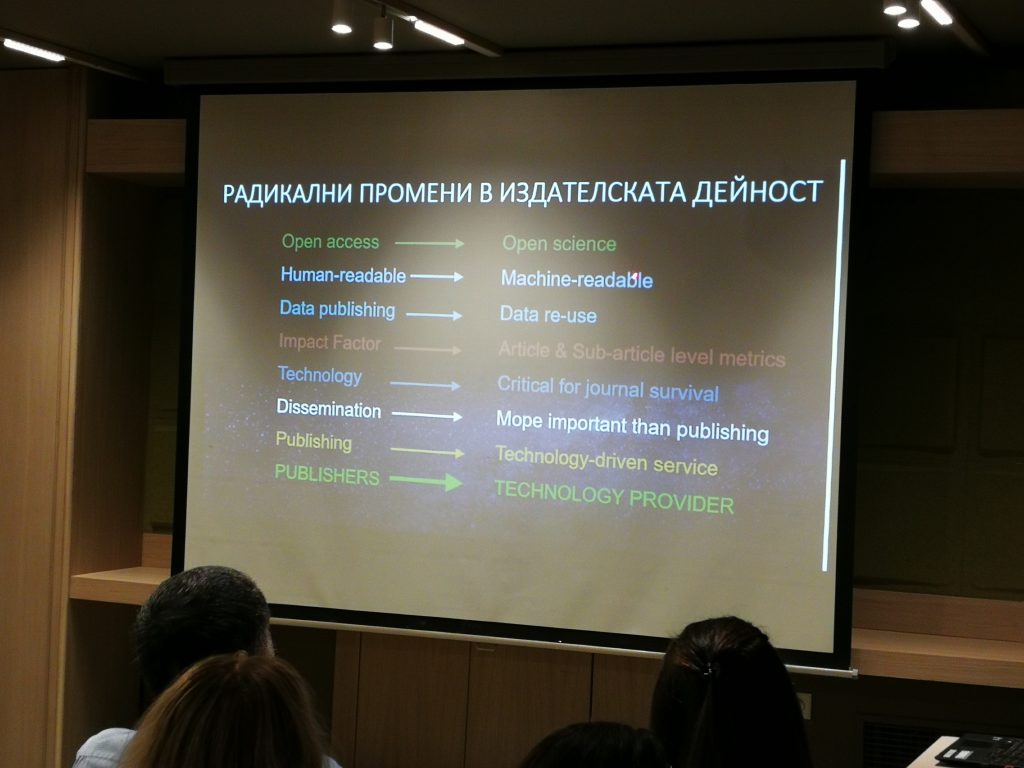
Photo by Pensoft.

